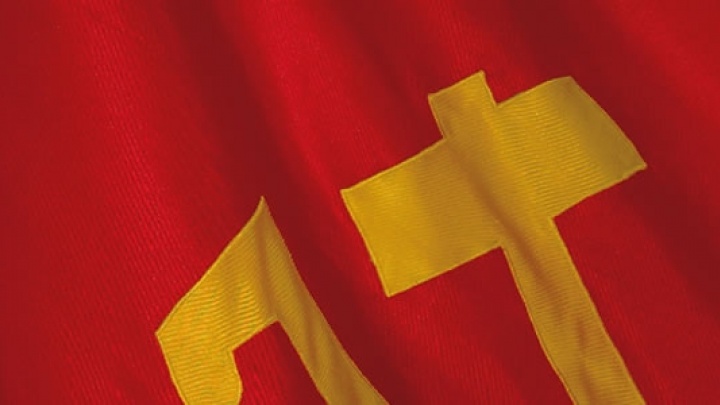Translated "Avante!"article by Luis Carapinha, Member of the International Department
Disturbing signals carry on coming from the region the USA strategic hegemony calls Asia- Pacific. The crossed dispute framework and the instability in which China is outlined as the “target to be demolished” is acquiring permanent contours. The “territorial throw” becomes once more to be brandished and instrumentalized all along China’s Seas line. As a synonymous of the tension increase, the South-East Asian Nations’ Association Summit, which took place last July, closed without any conjoint statement , for the first time in 45 years of history. The last drop, within this dangerous escalade tide was launched by Japan during the last weeks through the announcement on the Diaoyu island’s property, in the China Oriental Sea.
The provocative attitude of the discredited executive leadership of the Japanese Democratic Party, Yoshihiko Noda, does not but represent a dangerous demagogic manoeuvre of a musty nationalism, which the precarious Nippon social-democracy lends itself, this time. The global dragged context of the capitalist crisis deepening, is notorious, in which Japan is par excellence an illustration of a stagnation prominent picture. Being the planet third economy, the Japanese public debt has leaped over the 200% of the GDP and the inequalities gap does not stop increasing. Indeed, no one has forgotten this crisis’ impacts on the Chinese economy freeze - the second economy within the planet and even so holds a GDP growth round eight percent, in reference to the year’s first semester - , as the Chinese political calendar is not forgotten, on the eve of the taking place of an important party congress and the Ch CP and State substantial programmed leader renovation. Therefore, an a moment for [ imperialism] to try to agitate waters elsewhere.
By elevating the territorial stake regarding the inhabited archipelago of the Diaoyu islands, internationally recognized as Chinese territory within the framework resulting from the Fascism defeat in 1945, the Japanese great capital shows its aggressive and expansionist nature, never loosing, simultaneously, the opportunity to produce one more stroke on the international legal system issued from the post-war.
The old Japanese militarism, responsible for cruel occupation wars and hideous crimes, such as the Naquin massacre, is not in the condition of rebuilding its old posture. The current reappearance of the Japanese imperialism military and interventionist component happens within the frame of the military alliance reinforcement with the USA. By the North-American imperialism and the strategic priorities of its expansionist agenda, fustigated by the decline present situation imperatives and the phenomenal economic unbalances, imperialism discovers its vocation. It is Washington’s “protection” - with military bases and many thousands of soldiers at service in Japan - which provides coverage for territorial pretensions and makes Tokyo wave its arms against China ( Diaoyu islands arbitrary statute alteration, is a gross example, during the 50’s).
And therefore, the old rising sun empire follows the same step within the global forces projection moved by the USA and NATO. The Japan’s masqueraded military support participation to the Afghanistan and Iraq’s wars, violating its own Constitution, and its role within the global project of the anti-missile shield, the USA moves in order to annul Russia’s and China’s nuclear potential.
The Tartuffe role belongs to the USA regarding the destabilization manoeuvres in progress. They will not regard any means to close down the contention, pacification and cooptation circle, a task which some designate as China’s “ peaceful transition”. The Chinese double condition as an undeniable “ economic partner” and imperialism’s major target-obstacle, explain the USA’s military machine strategic focus “ re-orientation” towards Asia-Pacific, announced by Obama, this year. This is the deep current which heats up the stormy China seas waters.
